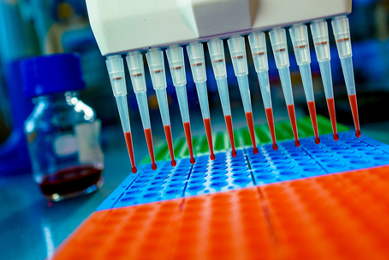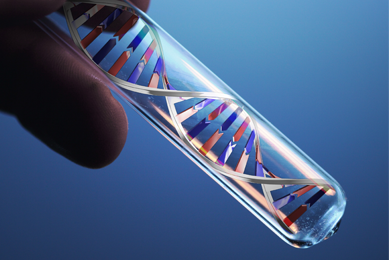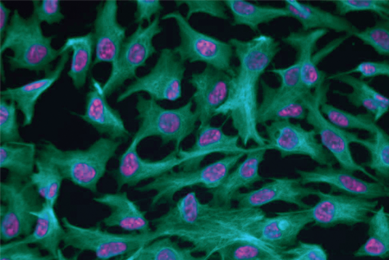Why it's important
Over the years, accumulating evidence has mounted concerns on the robustness, reliability, and relevance of preclinical research. For instance, a 2015 analysis by Freedman et al. identified that the prevalence of irreproducible preclinical research was greater than 50%, correlating with the expenditure of $28 billion per year in the United States on basic biomedical research that cannot be repeated successfully.1 The team identified that errors and biases in study design, biological reagents and reference materials, laboratory protocols, and data analysis and reporting are the predominant factors that lead to non-reproducible research. Of these aforementioned factors, the use of poor biological reagents and reference materials contributed the most to the reproducibility problem at 36.1%.1
Cell lines form the cornerstone of cell-based experimentation studies that help researchers understand the underlying mechanisms of normal and disease biology. Misidentified cell lines and inaccurate public 'omics datasets can adversely affect biomedical research, leading to false conclusions and non-reproducible data that can compound with each subsequent study. Despite the availability of authentication techniques like short tandem repeat (STR) analysis or whole-genome sequencing, misidentified cell lines remain a pervasive issue; in fact, it is estimated that between one fifth and one third of all cell lines are misidentified.2,3
What's the solution?
Using authenticated, highly characterized cell lines can greatly improve data integrity and assay reproducibility. Cell lines verified by a multifaceted approach that confirm purity and phenotypic, genomic, and transcriptomic traits are essential tools for preclinical studies. By starting a set of experiments with traceable and authenticated reference materials and 'omics datasets, the resulting data will be more reliable and more likely to be reproducible.
How we can help
To support scientific credibility and data reproducibility efforts, ATCC provides data provenance that is traceable, standardized, and authenticated to its original source. Through our partnership with QIAGEN, we provide scientists with access to manually curated whole transcriptomic (RNA-seq) and genomic (whole exome sequencing) datasets and associated metadata from the most highly utilized human and animal cell lines found in ATCC's collection. This enables scientists to quickly find 'omics data for their gene of interest and understand gene expression levels for different cell lines, saving time and resources while empowering drug discovery research.
These datasets, available through ATCC Cell Line Land, include multiple biological and technical replicates that will help establish a baseline for a wide range of cell lines under typical cell culture conditions. Users will also be able to request datasets to be included in the database in the future.Did you know?
ATCC Cell Line Land contains manually curated 'omics data for 70+ kidney cell lines and will continue to grow by 1000 new samples each year.
Ajeet Singh, PhD
Senior Scientist, ATCC
Dr. Ajeet Singh is Senior Scientist at ATCC where he is focused on providing reference-grade whole transcriptome data that is authenticated, standard, and traceable to physical source materials available in ATCC’s biorepository. Prior to joining ATCC, Dr. Singh received his PhD in Agricultural Plant Pathology where he performed research focused on epidemiology and integrated management of plants pests and diseases. He then performed postdoctoral research at the National Institute of Environmental Health Sciences and subsequently worked as a Senior Staff Scientist at the National Cancer Institute. Dr. Singh has extensive experience in biomedical research with his research career expanding an array of interrelated disciplines exploring epigenetics, chromatin and gene expression in reproductive developmental toxicology, stem cell biology, and cancer.
Explore our resources for reproducibility
 White paper
White paper
Improving accuracy and reproducibility in life science research
In this white paper, we review several predominant factors affecting reproducibility in life science research and outline efforts aimed at improving the situation.
More
Cell Authentication
ATCC offers scientists stand-alone and customized cell authentication services to confirm the identity and purity of their research cultures. Services include human and mouse cell STR profiling and sterility, CO1, and mycoplasma testing.
More
Repairing Reproducibility
Reproducibility is an urgent problem. Explore what your colleagues believe is the source of the issue and what scientists can do to solve it.
MoreReferences
- Freedman LP, Cockburn IM, Simcoe TS. The Economics of Reproducibility in Preclinical Research. PLoS Biol 13(6): e1002165, 2015. PubMed: 26057340
- American Type Culture Collection Standards Development Organization Working Group ASN-0002. Cell line misidentification: the beginning of the end. Nat Rev Cancer 10(6): 441-448, 2010. PubMed: 20448633
- Horbach SPJM, Halffman W. The ghosts of HeLa: How cell line misidentification contaminates the scientific literature. PLoS One 12(10): e0186281, 2017. PubMed: 29023500